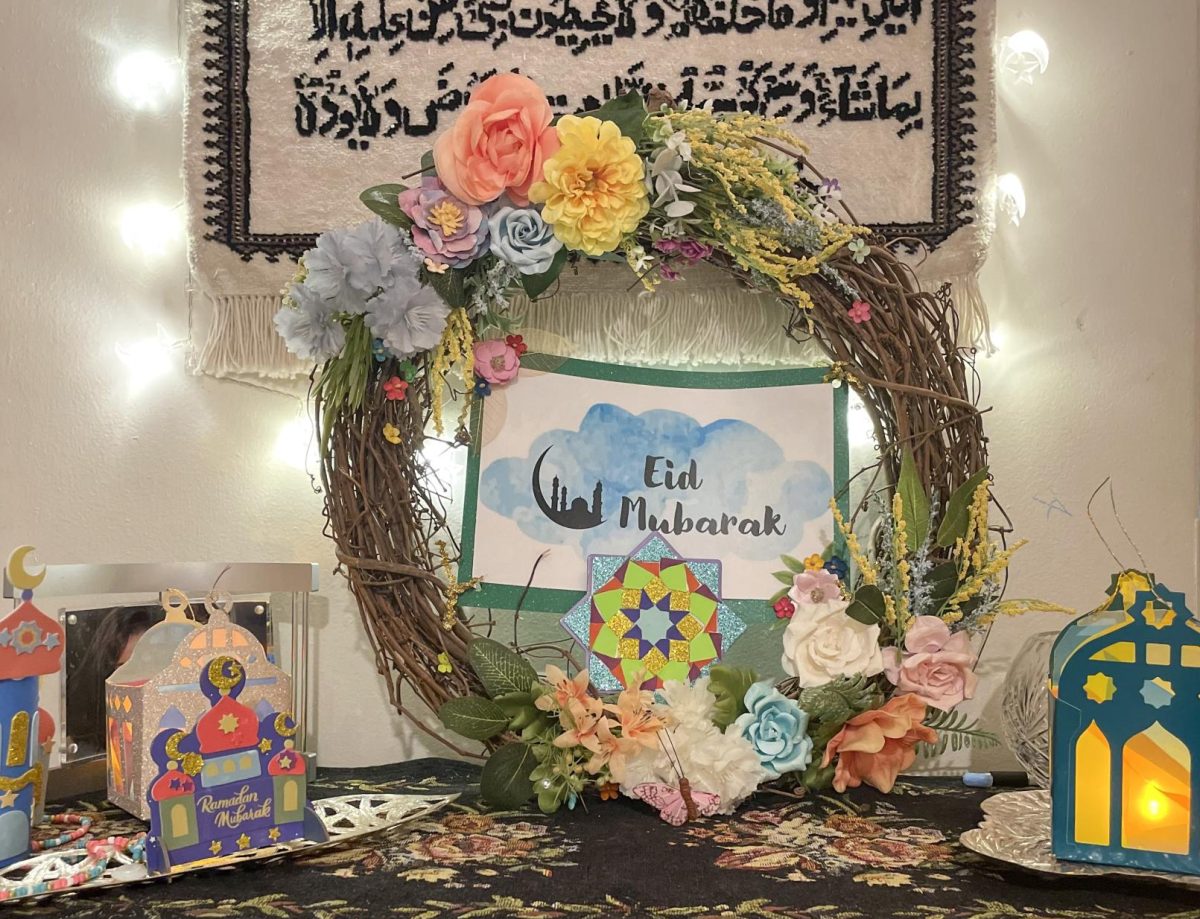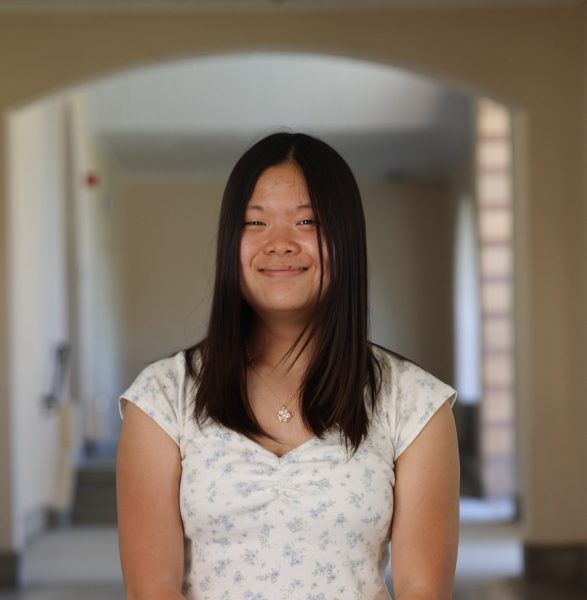Under the soft glow of lanterns, Palo Alto High School sophomore Nusaybah Mohsin shares a pre-dawn meal with her family — a moment of unity that marks the beginning of another day of Ramadan. As classes and extracurriculars unfold, Mohsin balances the holy month’s call for reflection and sacrifice with the demands of teenage life.
Ramadan, the ninth month of the Islamic calendar, is a sacred time for Muslims who fast from dawn to dusk. This fasting period is about more than hunger — it is a time for spiritual growth, self-discipline and compassion.
At Paly, Ramadan shifts the daily routine for sophomore Mohsin and other Muslim students.
“My sleep schedule is affected the most,” Mohsin said. “Since I do zero-period PE, I end up staying awake after I eat breakfast, around 5:30 a.m., so I can get ready for school on time which means I’m pretty exhausted by the time I get home.”
In Mohsin’s house, the air is filled with excitement and happiness, shown by the festive decorations and a chalkboard that counts down the days until Eid al-Fitr, the joyful celebration that marks the end of Ramadan.
“Since I was young, I have always considered Ramadan to be ‘our month’ [for the Muslim community] as it does not line up with the traditional holiday season in December,” Mohsin said. “Having a whole month where I get to show how proud I am to be Muslim in addition to the rest of the year is really special to me.”
For Paly parent Haluk Konuk, he dedicates time to a tradition beyond fasting: engaging with the Quran. This month is the time to delve deeper into the scripture’s verses, seeking understanding and wisdom, Konuk said.
“I read different Quran translations and contemplate on the verses, as the Quran itself asks to think or ponder over 100 times,” Konuk said.
Donating to charity is also important during Ramadan, according to Konuk.
“The Quran mentions charity at least 43 times, and mentions orphans 23 times,” Konuk said. “In contrast, the Quran mentions Ramadan once and only once.”
During Ramadan, a time typically filled with peace and reflection, Mohsin said the distressing situation in Gaza often comes to mind.
“It is already awful what is happening in Gaza,” Mohsin said. “Especially during Ramadan, it sucks that they can’t enjoy something that many of us can. I never have to worry about what I will have for Iftar, the meal that breaks my fast. But in Gaza, they are dealing with a famine, so they don’t know where or when they’re going to get their next meal.”
According to Mohsin, meaningful support must include open discussions. These conversations should be informed and free of stereotypes and prejudice, especially when addressing the prolonged conflict.
“I’ve been boycotting brands that directly support Israel’s military or call for violence against Palestine, and I try to speak up about it when I can,” Mohsin said. “The most effective thing is to just talk, share or repost about what’s happening and understand the atrocities in Palestine didn’t just start in October, rather, are the product of colonization and 75 years of conflict.”
It is paramount for everyone to be informed and openly discuss current events, especially in the hostile affairs in the Middle East as of today, Mohsin said.
“If people can’t have these kinds of conversations, the whole history and all the data outside of just what is shown mainstream, and instead choose to use stereotypes, racism and Islamophobia as their argument for their beliefs, it becomes nearly impossible for the fighting and genocide to end,” Mohsin said.




Andy • Mar 26, 2024 at 5:29 pm
Great article! Vamos, Allison!